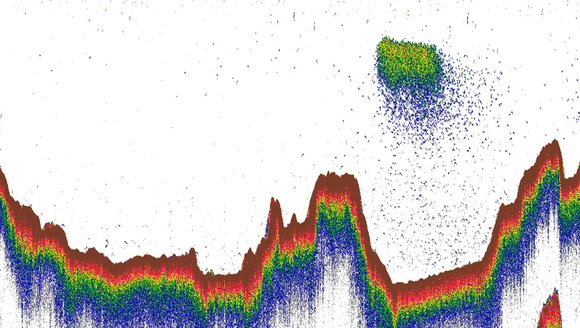Fisheries Ecology
Our lab investigates ecological information about economically important fish, ensuring our world-class fisheries can adapt to changes.
Understanding where fish move underwater, how they behave, and what sustains them is critical information for fisheries managers. Our lab studies these critical components to help fishermen and fishery managers to stay ahead of the curve, adapt, and maintain a profitable fishery while also sustaining fish populations. Currently, we focus on key species such as Atlantic herring, Atlantic cod, monkfish, haddock, lobster, and northern shrimp, among others. As the Gulf of Maine continues to warm more rapidly than most water bodies on the planet, understanding how fish will respond to warming is more important than ever.
We aim to:
- Provide fisheries managers and fishermen with the continual stream of up-to-date information necessary to run sustainable, profitable operations.
- Track how changing ocean conditions influence fish distribution, abundance, habitat associations, predator-prey interactions, behavior, movement, and more.
- Sustain the culturally, historically, economically, and ecologically important fisheries in the Gulf of Maine.
Lab Team
Our Methods
Our lab seeks to understand ecological relationships between species, as well as how changing ocean conditions influence species’ movement, growth, and reproduction. This work helps refine sustainable management approaches.
Our lab utilizes a range of techniques for exploring fisheries ecology in the Gulf of Maine. Fisheries acoustics (sonar) is a powerful method for examining patterns in distribution, abundance and behavior. Tagging can yield insights into movement patterns, behavior and stock structure. Stable isotope analysis of tissues and otoliths (ear bones) is a cost-effective way to infer diet, origin, and how food chains are put together. Environmental DNA (eDNA) is a new and exciting technique that can shed light on fish presence and abundance; we are involved in studies to validate the use of eDNA (e.g., by comparing to more traditional means of capture and observation) for eventual use as an assessment tool. We partner with scientists from other institutions and agencies as well as with the fishing industry to conduct our field studies.
-
Fisheries acoustics
-
Otolith chemistry
-
Environmental DNA
-
Tagging studies
Our lab seeks to understand ecological relationships between species, as well as how changing ocean conditions influence species’ movement, growth, and reproduction. This work helps refine sustainable management approaches.
Our lab utilizes a range of techniques for exploring fisheries ecology in the Gulf of Maine. Fisheries acoustics (sonar) is a powerful method for examining patterns in distribution, abundance and behavior. Tagging can yield insights into movement patterns, behavior and stock structure. Stable isotope analysis of tissues and otoliths (ear bones) is a cost-effective way to infer diet, origin, and how food chains are put together. Environmental DNA (eDNA) is a new and exciting technique that can shed light on fish presence and abundance; we are involved in studies to validate the use of eDNA (e.g., by comparing to more traditional means of capture and observation) for eventual use as an assessment tool. We partner with scientists from other institutions and agencies as well as with the fishing industry to conduct our field studies.
- Fisheries acoustics
- Otolith chemistry
- Environmental DNA
- Tagging studies
Research Lab Projects
-
![Casco Bay Aquatic Systems Survey (CBASS)]()
Casco Bay Aquatic Systems Survey (CBASS)
CBASS, a long-term monitoring effort led by GMRI, helps us gain a better understanding of the pace and direction of changes taking place in the …
-
![Environmental DNA Validation]()
Environmental DNA Validation
To advance the reliable use of eDNA in the ocean, we are conducting a validation study using acoustic technologies for quantifying fish. We have extensive …
-
![Monitoring Pollution with Mussels]()
Monitoring Pollution with Mussels
To construct more complete maps of human-associated nitrogen loading to our marine ecosystems, we measure nitrogen stable isotopes in mussels from numerous coastal sites. This …
-
![Research Experience for Undergraduates]()
Research Experience for Undergraduates
At GMRI, one of nearly 700 NSF-funded REU sites across the country, we introduce students to an exciting diversity of marine and fisheries science opportunities. …
-
![Using telemetry and eDNA to quantify marine biodiversity]()
Using telemetry and eDNA to quantify marine biodiversity
We are using acoustic telemetry, active acoustics, passive acoustics, eDNA, and traditional sampling to track the movements and diets of important predators, Atlantic cod, and …
-
![Reducing Cod Bycatch with New Trawl Nets]()
Reducing Cod Bycatch with New Trawl Nets
Struggling to avoid cod and haddock? We have a free net for you.
Read Next
-
![Gulf of Maine Warming Update: Spring 2024]()
Gulf of Maine Warming Update: Spring 2024
Over the past decade, scientists have led a body of research that highlights the rapid pace of warming in the Gulf of Maine. To help …
Reports
-
![Gulf of Maine, Explained: Tracking Ocean Conditions]()
Gulf of Maine, Explained: Tracking Ocean Conditions
GMRI Senior Program Manager, and leader of our Ocean Data Products team, Riley Young-Morse explains how she uses deep water buoys to collect data on …
Gulf of Maine, Explained
-
![Gulf of Maine, Explained: Environmental DNA (eDNA)]()
Gulf of Maine, Explained: Environmental DNA (eDNA)
GMRI Research Scientist Dr. Graham Sherwood, who leads our Fisheries Ecology Lab, explains how environmental DNA (eDNA) can help us study fish populations in the …
Gulf of Maine, Explained
-
![Gulf of Maine, Explained: Species Distribution Modeling]()
Gulf of Maine, Explained: Species Distribution Modeling
GMRI Quantitative Research Associate Dr. Andrew Allyn talks about how scientists use computer models to understand where fish are in the Gulf of Maine, and …
Gulf of Maine, Explained









